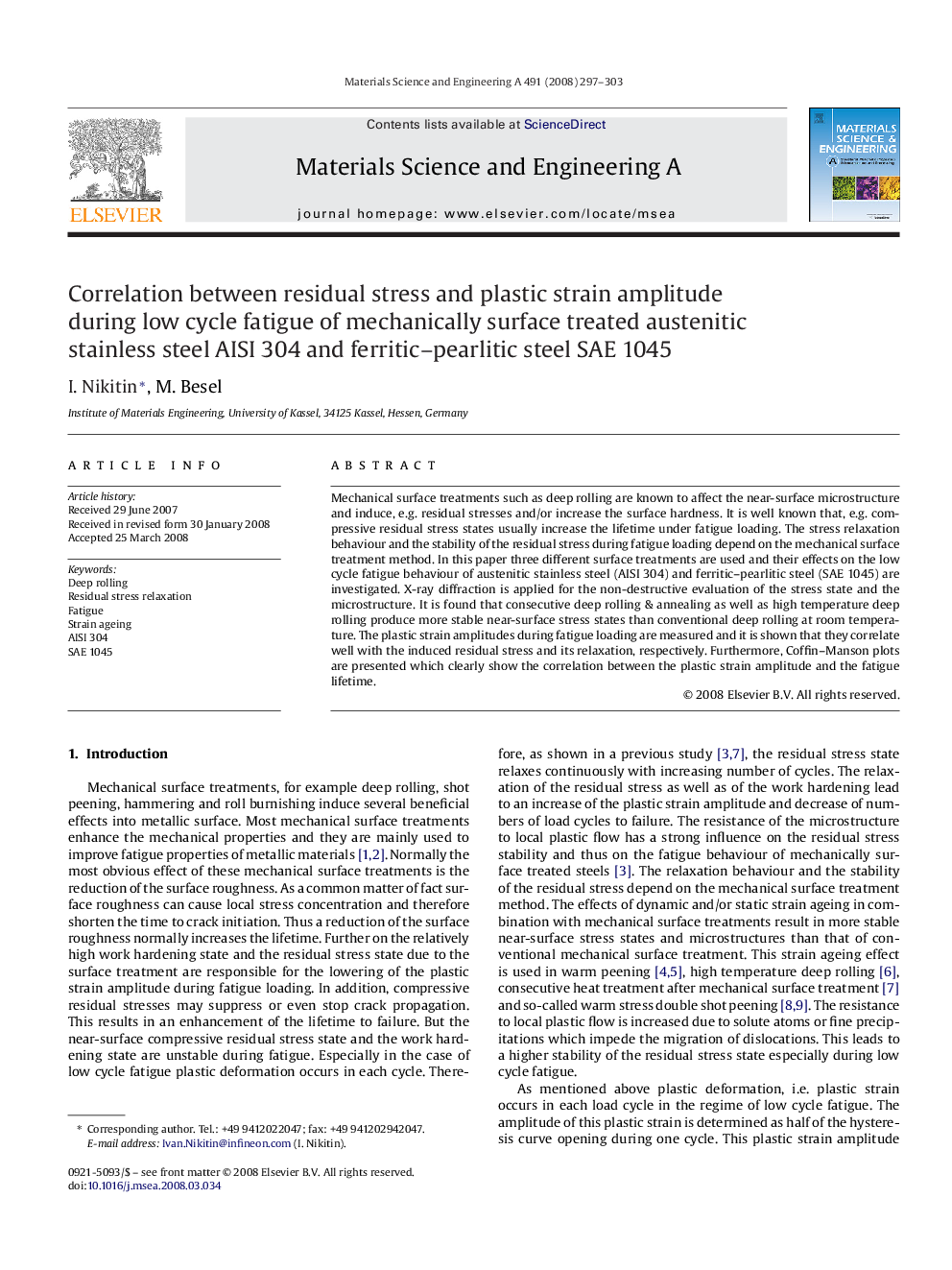| Article ID | Journal | Published Year | Pages | File Type |
|---|---|---|---|---|
| 1582053 | Materials Science and Engineering: A | 2008 | 7 Pages |
Abstract
Mechanical surface treatments such as deep rolling are known to affect the near-surface microstructure and induce, e.g. residual stresses and/or increase the surface hardness. It is well known that, e.g. compressive residual stress states usually increase the lifetime under fatigue loading. The stress relaxation behaviour and the stability of the residual stress during fatigue loading depend on the mechanical surface treatment method. In this paper three different surface treatments are used and their effects on the low cycle fatigue behaviour of austenitic stainless steel (AISI 304) and ferritic-pearlitic steel (SAE 1045) are investigated. X-ray diffraction is applied for the non-destructive evaluation of the stress state and the microstructure. It is found that consecutive deep rolling & annealing as well as high temperature deep rolling produce more stable near-surface stress states than conventional deep rolling at room temperature. The plastic strain amplitudes during fatigue loading are measured and it is shown that they correlate well with the induced residual stress and its relaxation, respectively. Furthermore, Coffin-Manson plots are presented which clearly show the correlation between the plastic strain amplitude and the fatigue lifetime.
Related Topics
Physical Sciences and Engineering
Materials Science
Materials Science (General)
Authors
I. Nikitin, M. Besel,
